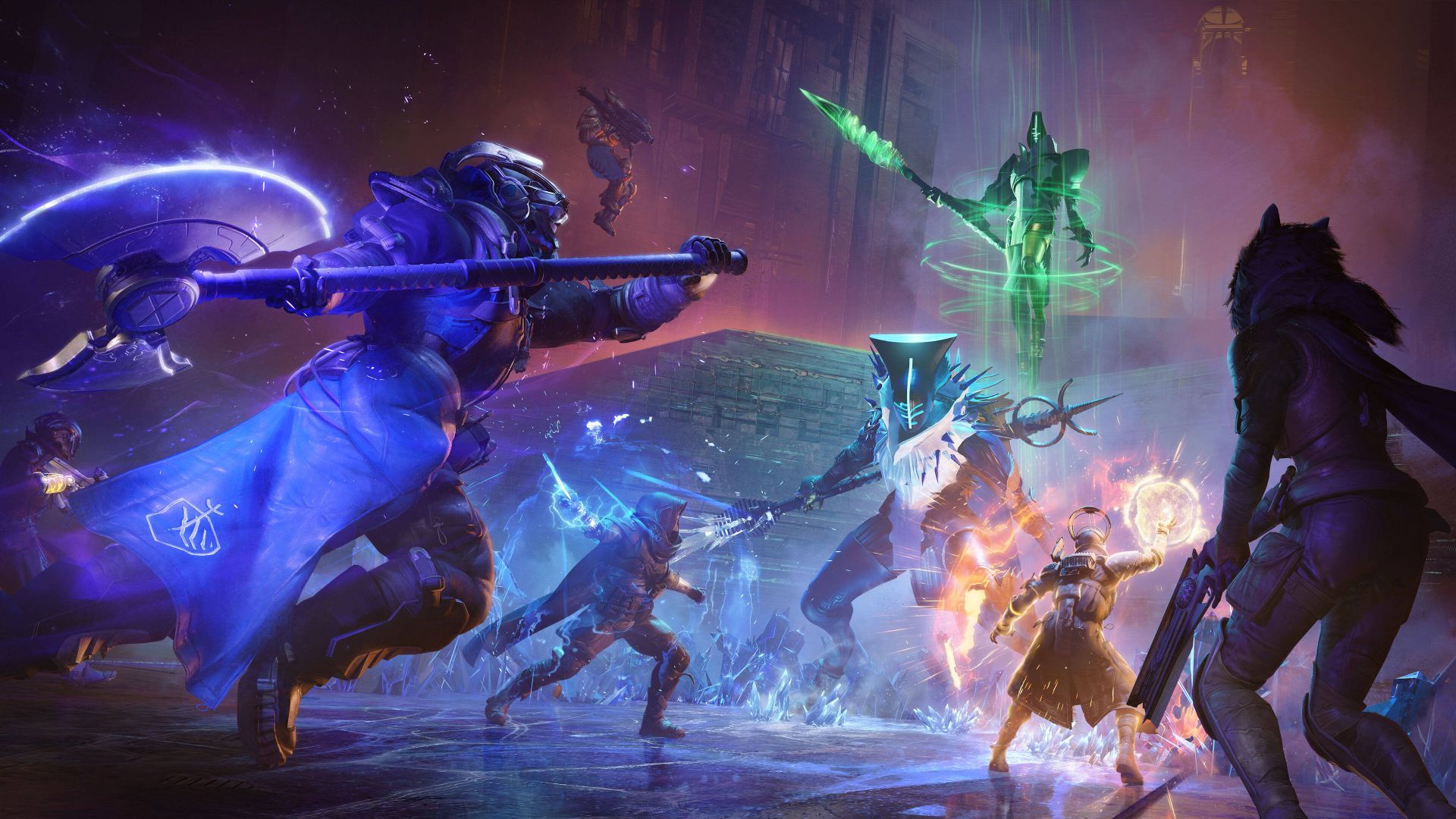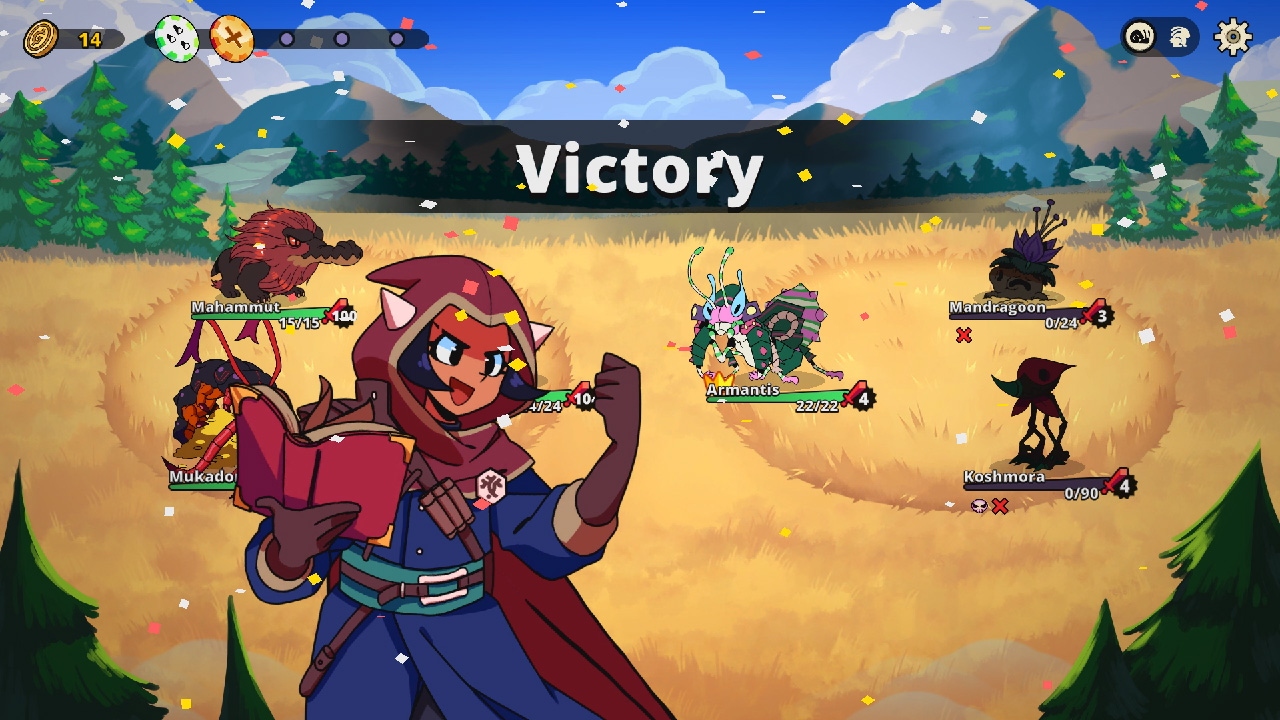
Dicefolk is a roguelike strategic battling game. You have three critters, called “chimera,” under your command. You make use of their various combat benefits as you battle groups of randomly generated groups of one to three enemies. You fight these groups across a randomly-generated battlefield, culminating in a boss fight on your way to the next level.
The central mechanism of combat is dice, as you might imagine. You and your enemies roll a set of three each (though you can buy more at various shops). The dice give you access to commands that let you attack or buff your chimera, or rotate their position in combat. A dice roll might also let you do nothing (“idle”), activate a special power, or re-roll a die.
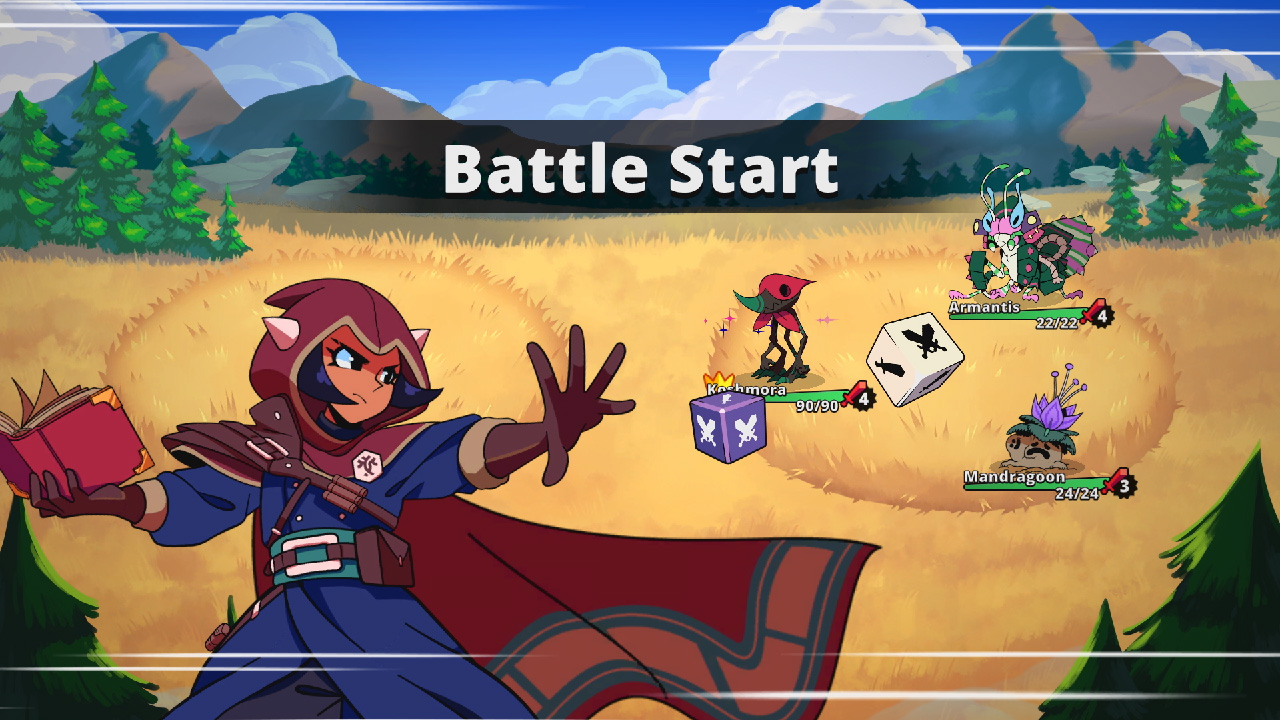
The twist that Dicefolk gives you, the player, is that you’re not only in control of your own die, but the enemy’s as well. For example, let’s say that you have one “guard” die available (which will protect your chimera from attack), and your enemy has two dice: rotate position and attack. Your best option is obviously to guard your critter, but should you choose to have the current enemy attack, or rotate to a weaker foe?
Chimera also have special abilities that come into play under diverse circumstances. Some chimera launch special abilities when they’re rotated into or out of position. Some gear can be activated by special die rolls, allowing them to cast spells, attack foes, or reinforce allies.
Between battles, you’ll wander a randomly-generated map. In addition to combat zones, you can encounter shops where you can buy equipment, modify your dice (and buy new ones), and also encounter campsites and gardens where you can rest and enhance your chimeras’ abilities.
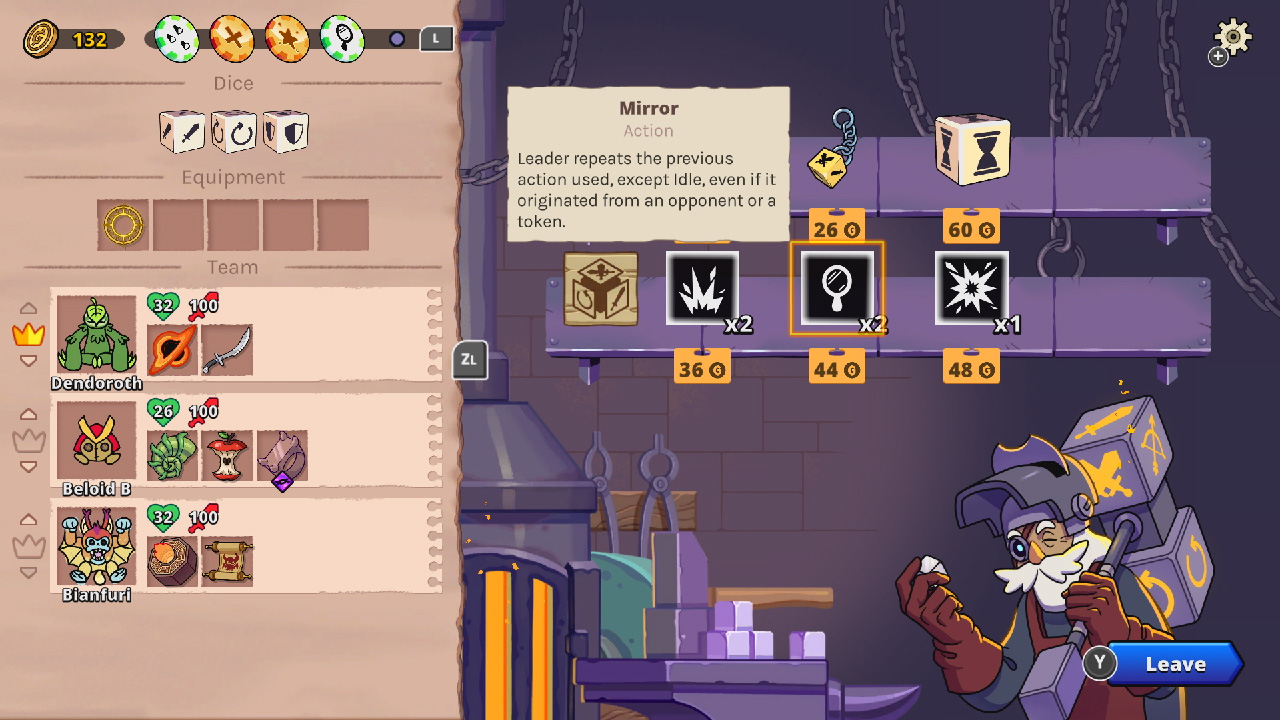
Tactically, the challenge of the game is in choosing how to use the dice to win a fight; you’ll need to quickly judge how to minimize the effectiveness of your foes. This can be tricky, because although you can end a round of battle without using all of your dice, you have to use all of the enemy dice before moving on.
Strategically, the game falls into the familiar pitfall of roguelike games. So much of it is random (by design) that it may not be actually possible to win a game, so you’ll have to play a level again and again until you happen to luck into a combination of chimera, enemies, gear, and rolls that allow you to make it to the end. Then you do it again. And again. And again.
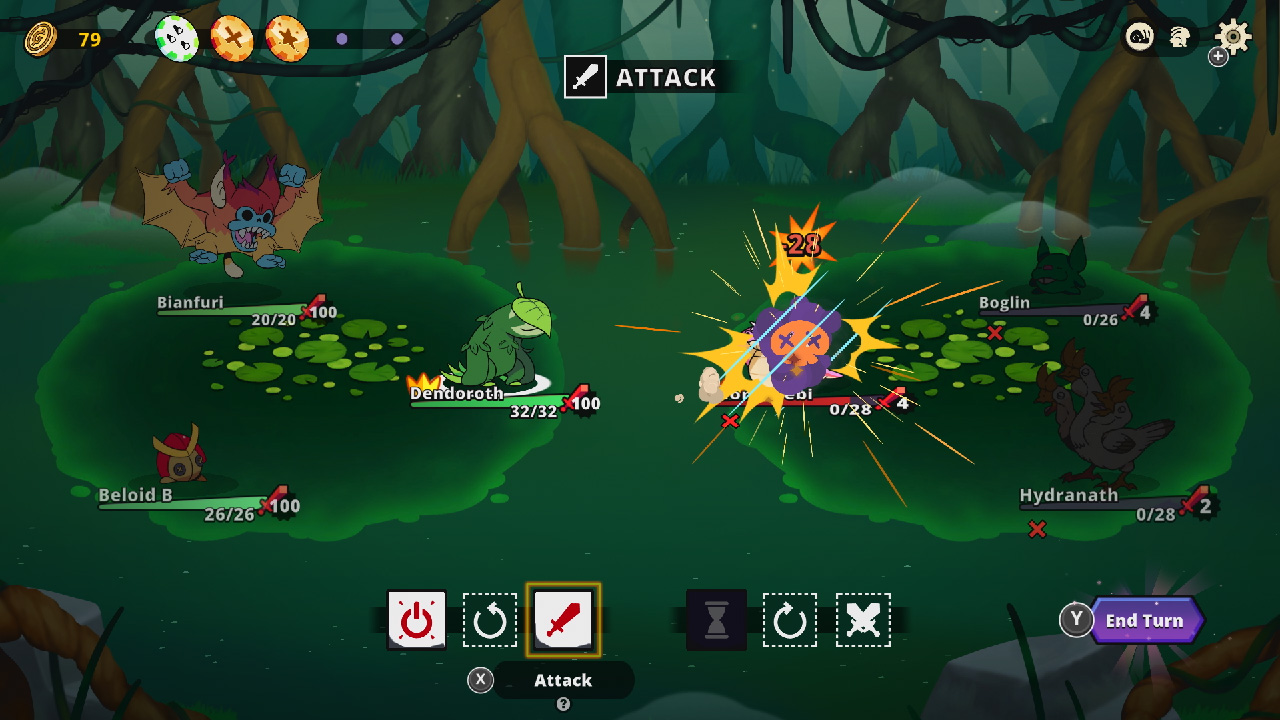
I understand the appeal of these games from the perspective of designers, as it saves them having to write a story. For gamers who enjoy them, it gives them “replayability.”
Dicefolk is, thus, frustrating by design. You can revisit shops (where you must spend money won in battles), but if you stop by a campsite, grove, or other potentially beneficial site, those are one-and-dones. You never know which chimera you’re going to unlock in a level, nor which equipment will be available to you. It’s your job to try to make it work. But it’s also possible that it might not be possible, if you see what I mean.
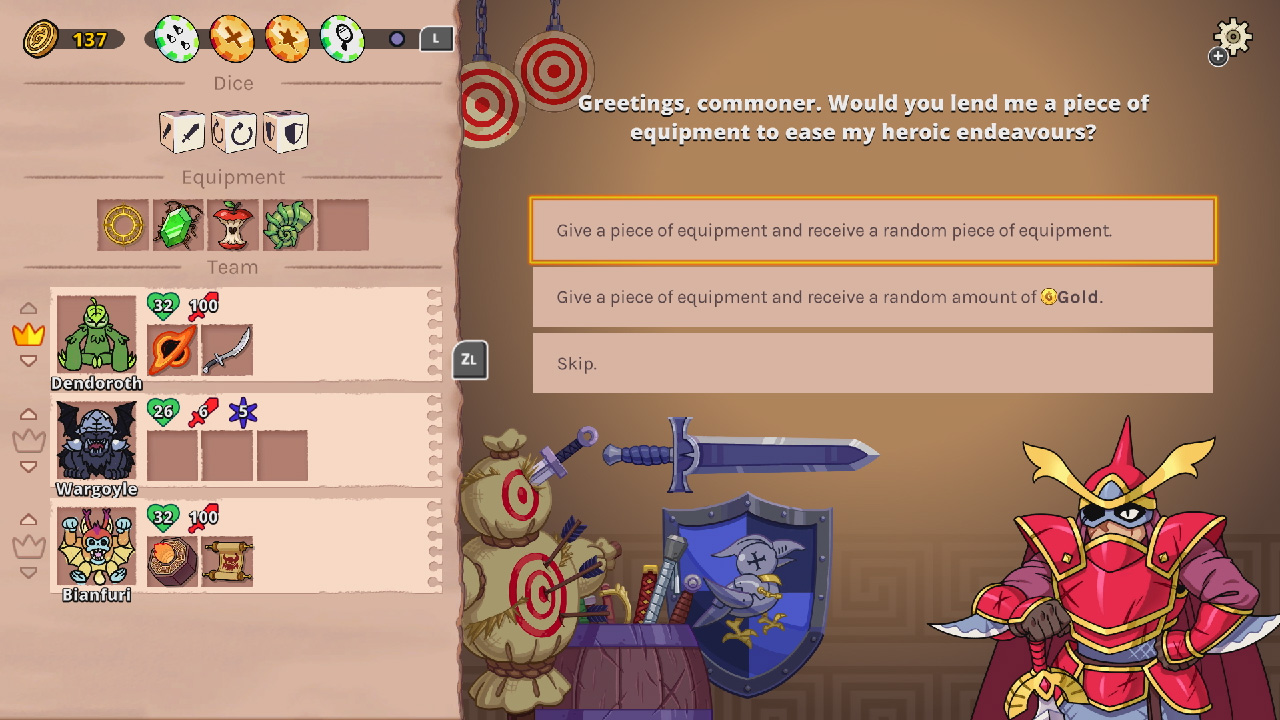
There is, of course, no payoff to winning the game, because lacking a story, there are no stakes, other than playing the next zone, or unlocking new critters and equipment to try it again. The repetitive nature is the point.
That having been said, Dicefolk was one of the more fun roguelikes I’ve played. The design has a fun, retro feel. Each of the chimera is rendered in an ’80s Hasbro sort of way, and when they get hit by attacks there’s a short, goofy reaction as if they can’t believe this is happening to them.
Dicefolk successfully tantalized me with the idea that this might be the time that I managed to pull a team together, after crushing me again and again. And every time, after a victory, the commander of the team thrust her fist down with an emotional “yes!” I was right there with her.



